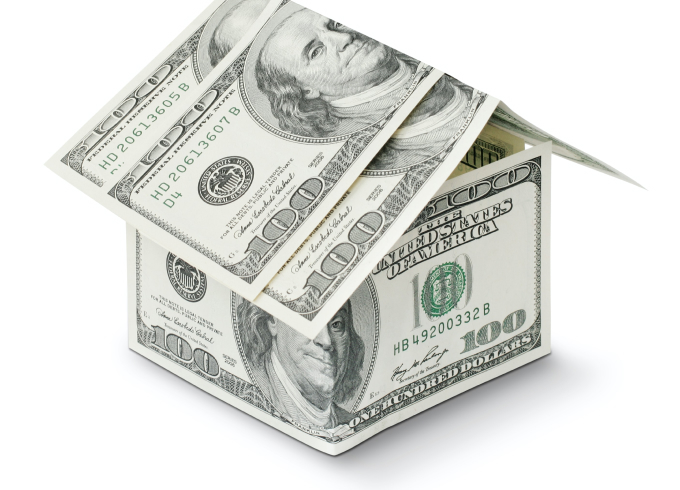
TAXES WHEN SELLING A HOUSE
When selling a house, there are a number of taxes that you need to take into consideration. The most common taxes are property taxes and sales commissions. Property taxes are typically paid by the seller and are based on the value of the property. Sales commissions are typically paid by the seller as well but can vary depending on the real estate agent. Other common fees include title insurance, loan origination fees, and appraisal fees. These fees are typically paid by the buyer but can vary depending on the situation.
Exhaustive Explanation of Various Taxes to Pay When Selling a House
Selling a house is a huge life event. Along with the excitement of finding a new home, comes the stress of making sure everything is in order for the sale. When you sell your house, there are a lot of things to think about. One of the most important things is what will happen with the taxes on the sale. How much will you have to pay? What are the tax implications of selling a home? In this blog post, we will answer all of those questions and more! We’ll discuss the different types of taxes that may apply when you sell your house, and we’ll help you figure out how much you can expect to pay. So, if you’re wondering about taxes when selling a house, read on!
Overview of Different Taxes that You Need to Pay During the House Selling Process
When you sell your house, there are a few different types of taxes that you may be responsible for. These include:
- Capital Gains Tax: If you make a profit on the sale of your home, you may be subject to capital gains tax. This is a tax on the profit that you make from selling an asset, like your home.
- State and Local Taxes: Depending on where you live, you may have to pay state and local taxes on the sale of your home. These taxes can vary depending on the state that you live in.
- Real Estate Taxes: You may also have to pay real estate taxes when you sell your house. These are taxes that are based on the value of your property.
Now that we’ve overviewed the different types of taxes that may apply when you sell your house let’s take a closer look at each one.
Capital Gains Tax
If you sell your house, you may have to pay capital gains tax on the sale. Capital gains tax is a tax that is imposed on the profit from the sale of an asset, such as a stock or a piece of real estate. The amount of tax that you will owe on the sale of your house will depend on how long you have owned the house. If you have owned the house for more than one year, you will be taxed at the long-term capital gains rate, which is currently 20%. If you have owned the house for less than one year, you will be taxed at the short-term capital gains rate, which is your ordinary income tax rate.
To calculate your profit from the sale of your house, simply subtract your selling expenses from your sales price. Your selling expenses can include things like real estate commissions, home staging costs, and repairs that you made to the house. If you have any questions about capital gains tax, be sure to speak with a qualified tax professional. They can help you understand the tax implications of selling your home and make sure that you are paying all of the taxes that you owe.
State Transfer Tax
In addition to capital gains tax, you may also have to pay state transfer taxes when you sell your house. State transfer taxes are taxes that are imposed by some states on the sale of real estate. The amount of state transfer tax that you will have to pay will vary depending on the state in which you live. In some states, there is no state transfer tax, while in others, the tax can be as high as two percent of the sale price of your home.
When you are selling your house, you will need to pay attention to the tax implications in your state. Selling your house can be a complicated process, but understanding the taxes that you will owe can help make the process a little easier. Be sure to speak with a qualified tax professional to ensure that you are paying all of the taxes that you owe on the sale of your home.
Income Tax
If you are in the process of selling your home, you may also owe income tax on the sale. The amount of tax that you will owe will depend on your tax bracket. For example, if you are in the 25% tax bracket, you will owe 25% of your profit in taxes. To calculate your profit from the sale of your house, simply subtract your selling expenses from your sales price. Your selling expenses can include things like real estate commissions, home staging costs, and repairs that you made to the house.
Property Taxes
When you sell your house, you may also have to pay property taxes. Property taxes are taxes that are imposed on the value of your property. The amount of tax that you will owe will depend on the value of your property and the tax rate in your area. In some cases, you may be able to deduct your property taxes from your income taxes. To qualify for this deduction, you will need to meet certain requirements.
- First, your property taxes must be paid in full.
- Second, you must use the property as your primary residence.
- Third, you must itemize your deductions on your income tax return.
Be sure to speak with a qualified tax professional to see if you qualify for this deduction.
Estate or Inheritance Tax
The other category of taxes is estate or inheritance tax. Estate or inheritance tax is a tax that is imposed on the transfer of property from one person to another. The amount of tax that you will owe will depend on the value of your property and the state in which you live. In some states, there is no estate or inheritance tax, while in others, the tax can be as high as 20%. In Texas, for example, there is no Estate of Inheritance Tax and you don’t need to pay it.
Sales Commissions
There are some other mandatory fees that you are likely to pay besides taxes and they include sales commissions. Sales commissions are fees that are charged by real estate agents for their services. The amount of the commission will vary depending on the agent and the area in which you live. In some cases, the seller pays the commission, while in others, the buyer pays the commission. Be sure to ask your real estate agent about their commission fee before you sign a contract.
The average sales commission for real estate agents in the US is six percent. This means that the agent will receive six percent of the sale price of your home as a commission. However, this amount can vary quite a bit.
Yes, you can sell your house without an agent, but you may not get the best price for your home. When you sell a house without an agent, you are responsible for marketing your home and negotiating the sale price. This can be a lot of work, and it is often difficult to get the best price for your home without an agent.
You can also sell your house to a real estate company like NeedToSell.com. We will buy your house as-is, and you will not have to pay any sales commissions. We will also pay all of the closing costs associated with the sale of your home. To learn more about selling your house to NeedToSell.com, give us a call today!
Other Closing Costs
In addition to sales commissions and property taxes, you will also have to pay other closing costs when you sell your house. These costs can include things like title insurance, loan origination fees, and appraisal fees. The amount that you will owe in closing costs will vary depending on the buyer of your home and the state in which you live.
- Title insurance is a type of insurance that helps protect you if someone challenges the title to your house. It can help cover the costs of any legal fees that you may have to pay if there is a dispute over the ownership of your house.
- Loan origination fees are charged by lenders when they originate a loan. These fees can vary depending on the lender, but they are typically between one and two percent of the loan amount.
- An appraisal is an estimate of the value of your house. Appraisals are typically required by lenders in order to get a mortgage. The cost of an appraisal will vary depending on the size and location of your house.
Conclusions
Selling a house is a complex process, and there are many things that you need to take into consideration. Taxes are just one of the many things that you will need to think about when you sell your house. The most common taxes are property taxes and sales commissions. Property taxes are typically paid by the seller and are based on the value of the property. Sales commissions are typically paid by the seller as well but can vary depending on the real estate agent. Other common fees include title insurance, loan origination fees, and appraisal fees. These fees are typically paid by the buyer but can vary depending on the situation.
Be sure to speak with a qualified tax professional to ensure that you understand all of the taxes that you may owe when you sell your house. You should also ask your real estate agent about their commission fee and other closing costs that you may be responsible for. NeedToSell.com can help make the process of selling your home easy and stress-free. Give us a call today!
Thanks for reading! We hope this was helpful in understanding some of the taxes you may owe when selling a house. If you have any further questions, please feel free to reach out to us at NeedToSell.com. We would be more than happy to help!








